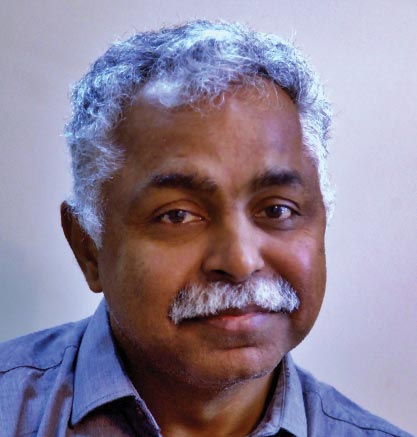-
CENTRES
Progammes & Centres
Location
Leveraging Mumbai’s strengths as a financial powerhouse will require regulatory changes and resolving taxation laws’ complexities. ...
A global platform can be one where cities learn from each other, share best practices, discuss challenges — and seek solutions together.
Marginalised sections of the urban population, particularly women, are disproportionately affected by environmental degradation and extreme climate change due to their gendered roles and lower incomes.
It is about recognising that while cities offer economic opportunities to millions, they come with poor and overcrowded housing, lack of safe water and sanitation, lack of education and primary healthcare, high risk of disasters and climate change events.
Paradiplomacy and leveraging links with other cities is useful in attracting investment and technology, and fostering cultural understanding.
What can cities do to ensure progress and prosperity for all?
Improving the fiscal state of cities will need a holistic push from all tiers of the government.
In 2021, India’s imperatives include uplifting the lives of marginalised populations, creating mechanisms for people’s participation in civic affairs, and controlling population growth.
Mumbai must spearhead the positioning of India as the third economic superpower, in between the forecasted East/West civilisation confrontation. ...
While megacities generate mega economy, they hurtle down the hill on almost all benchmarks of livability — a way must reverse this trend. ...
In the global urban context, cultural identity is becoming increasingly synonymous with the nature of prevalent collective activities. ...
Creating low carbon cities calls for a paradigm shift in government policies related to the built environment, particularly pertaining to land use, housing, urban mobility and water efficiency. ...
Gender-sensitive planning will help mitigate adverse and unequal impacts — and build resilience. ...
As the world grapples with the new normal, public transport and mass mobility are poised to undergo a transformative change. ...
The transition towards circular urban economies in India needs policy frameworks that allow the development of skills and the inclusion of informal workers in the formal chain of remanufacturing. ...
Modern street planning does not stop at technical designing. ...
Cities will need to give special attention to the needs of women and ensure that it builds on their economic productivity and recognises their contribution to the economy. ...
Children are not at the centre of city development as policies are planned for adults. It is time we start building a child policy for India. ...
The past practice of seeing all poverty in a rural light and applying rural solutions in urban conditions will not yield the expected results. ...
BRTS cities are now struggling with a surfeit of public transport systems — the normal bus service, BRTS and the Metro. ...
From 2021, Delhi’s new master plan, for guiding future development during 2021-41, will be applicable. The plan is currently under preparation and it is the right time to ensure that the new plan offers sound proposals for addressing problems posed by urbanisation. This article helps ...
Unlike the ‘area sabha’ of the Nagar Raj Bill, the decisions of the ‘jan sabha’ were to be binding on the wards committee in regard to local works and moneys within the budget allocated to the ward. ...
Solutions to the problem are pretty obvious. The first step is to set the policy right. Governments have to begin by scrapping the rent laws as they stand. ...
While there exists a weak and broken ecosystem of affordable rental housing, there is no ecosystem for seasonal urban migrants. ...
.jpg)

K. M Gopakumar is a Senior Researcher and Legal Advisor at Third World Network (TWN) and based in New Delhi, India. TWN is an independent, not-for-profit organisation that carries out policy research and advocacy on issues around trade and development, ...
Read More +
